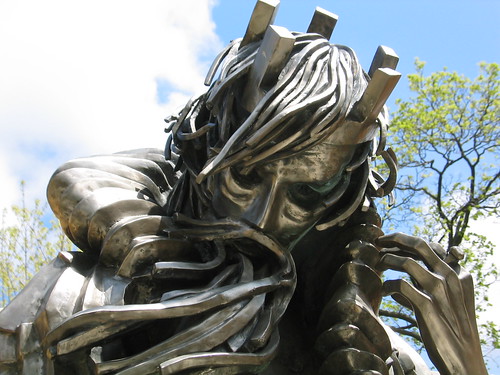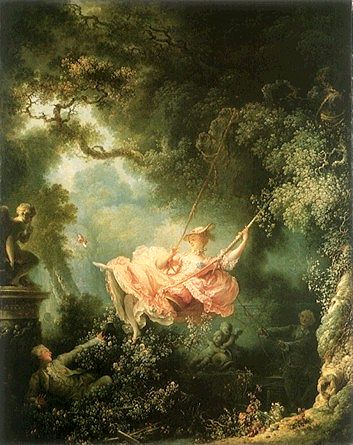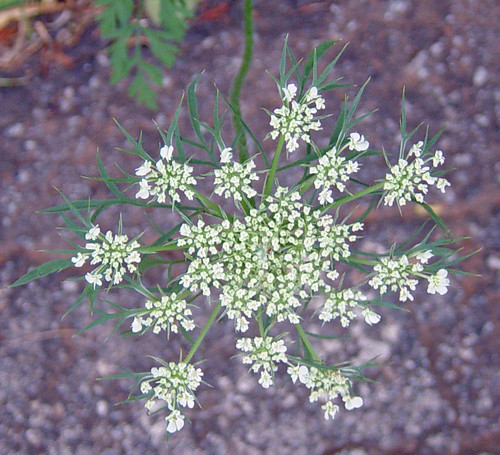THE BOOK
Song of Myself, Walt Whitman (Dover Thrift Edition)
ISBN: 0486414108
$2.50
BEFORE YOU READ SONG OF MYSELF READ THIS
James E. Miller, Jr. of the
In the 1855 edition of Leaves of Grass, “Song of Myself” came first in the
series of twelve untitled poems, dominating the volume not only by its sheer
bulk, but also by its brilliant display of Whitman's innovative techniques
and original themes. Whitman left the poem in the lead position in the 1856
edition and gave it its first title, “Poem of Walt Whitman, an American,”
shortened to “Walt Whitman” in the third edition of 1860. By the time
Whitman had shaped Leaves of Grass into its final structure in 1881, he left
the poem (its lines now grouped into 52 sections) in a lead position,
preceded only by the epigraph-like cluster “Inscriptions” and the
programmatic “Starting from Paumanok.”
”Song of Myself” portrays (and mythologizes) Whitman's poetic birth and the
journey into knowing launched by that “awakening.” But the “I” who speaks is
not alone. His camerado, the “you” addressed in the poem's second line, is
the reader, placed on shared ground with the poet, a presence throughout
much of the journey.
WHILE
· In your journal make note of the depiction of the self and its relationship with the surrounding world.
· Make note of motifs: the body and the spirit (“soul”), the individual and the group, the self and others (“I contain multitudes”), the self and nature, learning from encoded beliefs (“creeds”) or from experience, age and youth, male and female, life (procreating, sexuality, etc.) and death (dying and killing), activity (doing) and passivity (watching, observing, loafing, musing)
· Make note of Whitman’s use of language and poetic structure: lists, repetitions, parallel structures, etc.
You might consult this webpage which has some interesting notes on the poem.
http://www.vcu.edu/engweb/transcendentalism/roots/legacy/whitman/songofmyselfweb.html
AFTER
* Write an informal open response (300+ words) in which you discuss what this poem has to say about the self (body, soul, mind) and its relationship to the external world (other people, nature, etc.) Refer to specific passages. Quotations are important. I’m looking for close reading here. Show me you understand the particulars of the poem and their relationship to the concepts in the poem.
* Write an informal open response (300+ words) in which you examine Whitman’s use of language. This poem is called “Song of Myself” and so has elements of the music of language, even though Whitman departs from a set rhythm (like iambic pentameter) and rhyme scheme. Refer to specific passages in the poem to illustrate how Whitman uses other poetic techniques (alliteration, assonance, consonance, long lines, lists, repetitions, parallel structures, etc.) in his poetry. Then, I’m interested in hearing what you have to say about how those poetic techniques affect the meaning of the poem and the reader’s experience of the poem.
* Poem or personal response
Write a poem of your own using Whitman’s work as a guide. First, determine three characteristics of Whitman’s poetry. Then write a poem that emulates those three characteristics. (Think about the long lines, lists, repetitions, parallel structures. Think about Whitman’s assertion of self and the relationship between that self and the things around the self. Think about his observations of other people and other things around.) Be inventive. Have fun with this.
OR
Write an informal personal response. This response should be 300+ words. Sing a song of yourself! Invent a way of responding personally to these poems. You might respond to the book as a whole, to individual poems, to the style and language. You might write a personal response in which you adopt Whitman’s way of looking at the word and/or using language. Write a song of yourself in response to Whitman’s “Song of Myself”.








No comments:
Post a Comment